When you hear news that seems too good to be true, like learning that one of your favorite indulgences (like wine) may be good for you, it might be easy to dismiss as nonsense. But what if there really is something to it?
In the case of resveratrol, it may be more than just an excuse to drink wine, and wine isn’t the only place you can get it. Researchers around the globe are looking to foods high in resveratrol, as well as resveratrol supplements, for the potential health benefits it may provide. This natural antioxidant may be particularly beneficial for your heart since it displays a high affinity for cardiovascular tissue. Resveratrol’s best known for its potential anti-aging benefits when it comes to your skin and overall total-body health.
What is Resveratrol?
Resveratrol is a natural polyphenolic compound found in some plants and dark-colored berries. More than 70 species of plants have been identified as resveratrol sources, though not all of them are edible. In plants, researchers believe the purpose of resveratrol is to help protect the plants from various fungi and other potential attackers, and potentially to help preserve the plant during periods of drought or lack of nutrition. Some plants produce resveratrol in response to stress, UV radiation and other potentially harmful stimulation. Resveratrol has been the subject of many trials, human and otherwise, to determine its potential impact on health.
Is Resveratrol Really Good for You?
As the focus of many studies, resveratrol has been shown to have many positive health benefits. But it’s important to remember that not all studies have involved human subjects over very long periods of time and many are still underway. Thus far, researchers have highlighted the protective antioxidant effects of resveratrol as well as its potential to support the health of cardiovascular tissues such as the arteries and heart1 and potentially provide some anti-aging benefits.
Resveratrol studies have indicated that it’s one of the primary antioxidant compounds in red wine that links drinking red wine with potential cardiovascular benefits, making it a suspected contributor to the “French Paradox.” Despite eating diets high in fat, people in France tend to have fewer heart concerns than Americans who eat diets high in fat. Researchers have noted that the French drink more red wine, which is packed with resveratrol, and they believe it may be a contributing factor.
Benefits of Resveratrol
RESVERATROL FOR ANTI-AGING AND SKIN BENEFITS
The antioxidant benefits provided by resveratrol may help protect cells from free radical damage, which is cellular damage that occurs due to everyday bodily functions like exercising and digestion. Resveratrol may also help protect skin against photo-aging. And it may affect enzymes known as sirtuins, which are involved in the aging process. Resveratrol is a common ingredient in anti-aging skin creams due to these potential anti-aging benefits.
RESVERATROL FOR CARDIOVASCULAR TISSUE AND BLOOD HEALTH
Research suggests that resveratrol may help improve circulation and support healthy blood lipid levels and lipid metabolism. Resveratrol has unique and profound protective effects on cardiovascular tissue as well, so it may support heart health. A type of tea that is rich in resveratrol has been used for centuries in Asian countries to support heart health. It’s called Itadori tea, which means “wellbeing” tea.
Resveratrol Sources
Common sources of resveratrol include the skins of red grapes, peanuts, blueberries, cranberries, soy, cocoa and dark chocolate, pistachios, mulberries, bilberries and Polygonum cuspidatum (Japanese knotweed), which is frequently used in resveratrol supplements due to its high concentrations of resveratrol. There are nonedible plants that produce resveratrol as well, like some species of grass, pine bark, ivy and lilies.
Resveratrol levels in foods are affected by farming and cultivation methods as well as environmental stressors. Here are the typical resveratrol amounts in some common food sources:
• Raw Peanuts: 1 cup (146 g) contains 0.01 - 0.26 mg resveratrol
• Boiled Peanuts: 1 cup (180 g) contains 0.32 - 1.28 mg resveratrol
• Peanut Butter : 1 cup (258 g) contains 0.04 - 0.13 mg resveratrol
• Red Grapes: 1 cup (160 g) contains 0.24 - 1.25 mg resveratrol
• Dark Chocolate: approximately 0.4 mg of resveratrol per 1 kg of dark chocolate
• Cranberries: 0.5 - 0.8 mg resveratrol per 1 kg of cranberries and up to 1 mg per 1 kg of cranberry juice
• Blueberries: 0.3 mg resveratrol per 1 kg of blueberries and up to 16 mg per liter in blueberry juice
Resveratrol in Wine
With red wine being one of the richest sources of resveratrol it’s only natural to wonder if there’s a difference in the levels of resveratrol from one wine to another. As with other sources, the resveratrol content in wine depends on various factors, including the climate in which the grapes were grown, UV light exposure, the variety of grapes, and winemaking technology used. It may even vary from year to year.
WHICH WINE HAS THE MOST RESVERATROL?
In 1998 Cornell University researchers studied 100 red wines from both the U.S. and foreign countries and revealed that the New York state red wines had higher levels of resveratrol than comparable wines from the other regions globally. Pinot Noirs from New York had the highest resveratrol levels of all. Researchers attributed the high amounts of resveratrol in New York’s wines to the humid climate, which they suspect causes grapes to produce more resveratrol to combat mildew.
Another study conducted in 2007 recorded the below amounts of resveratrol per 5 ounces glass of various types of red wine.
• Pinot Noir - 0.5 mg
• Merlot - 0.4 mg
• Zweigelt - 0.3 mg
• Shiraz - 0.3 mg
• Cabernet Sauvignon - 0.2 mg
• Red wines average (global) - 0.3 mg
Topical Resveratrol and Resveratrol Creams
If you have looked around at anti-aging skincare products, you might have noticed resveratrol as a popular ingredient in some creams and oils. Resveratrol has shown promise for promoting skin health and researchers say the antioxidant properties of resveratrol may help protect skin from photo-aging and oxidative stress. Many anti-aging creams with resveratrol also contain other ingredients that may support skin health, like aloe, vitamin A, vitamin E, cocoa butter and even CoQ10.
Resveratrol Supplements
Resveratrol supplements are a convenient way to get the potent antioxidant benefits of resveratrol every day. There are is no officially recommended dosage for resveratrol, but resveratrol supplements are usually taken in doses of 50-250 mg per capsule and up to 250 - 500 mg per day. Swanson Health’s most popular resveratrol supplements combine red wine extract with grapeseed and resveratrol from Polygonum cuspidatum (Japanese knotweed) for a potent antioxidant blend.
Resveratrol Side Effects
Studies conducted thus far have not reported any severe side effects of taking resveratrol, even when large doses were used in the studies.10 But resveratrol supplements may interact with blood thinners and other medications like aspirin and ibuprofen10 so always check with your doctor before taking resveratrol supplements, especially if you are taking other medications.
Benefits of Resveratrol
Many of the potential benefits of resveratrol are still being studied, but it has gained a lot of attention due to anti-aging and protective benefits for our health. While resveratrol may not be the answer to all of our anti-aging and longevity questions, it could play an important role. And beyond the French Paradox, studies have shown that people who drink wine may have a longevity advantage. That shouldn’t be an excuse to drink wine in excess, of course, but maybe it’s a nudge to choose wine over other alcoholic beverages, or to choose a nonalcoholic beverage with resveratrol, like cranberry juice instead. You could also skip the extra calories and try resveratrol supplements to support your health.













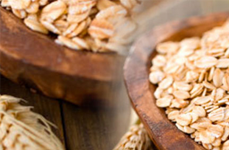
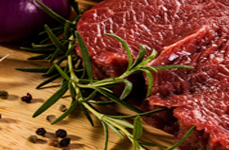
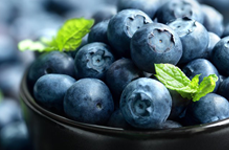


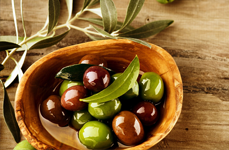
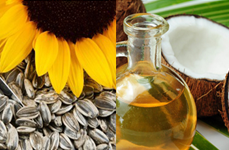



LEAVE A COMMENT :
Comments sort : Newest / Oldest / Most Upvoted